第20章 CHAPTER 2(5)
We know that from impulse and habit, when not from deliberate purpose, almosteveryone to whom others yield, goes on encroaching upon them, until a pointis reached at which they are compelled to resist. Such being the common tendencyof human nature; the almost unlimited power which present social institutionsgive to the man over at least one human being -- the one with whom he resides,and whom he has always present -- this power seeks out and evokes the latentgerms of selfishness in the remotest corners of his nature -- fans its faintestsparks and smouldering embers -- offers to him a licence for the indulgenceof those points of his original character which in all other relations hewould have found it necessary to repress and conceal, and the repressionof which would in time have become a second nature. I know that there isanother side to the question. I grant that the wife, if she cannot effectuallyresist, can at least retaliate; she, too, can make the man's life extremelyuncomfortable, and by that power is able to carry many points which she ought,and many which she ought not, to prevail in. But this instrument of self-protection-- which may be called the power of the scold, or the shrewish sanction --has the fatal defect, that it avails most against the least tyrannical superiors,and in favour of the least deserving dependents. It is the weapon of irritableand self-willed women; of those who would make the worst use of power ifthey themselves had it, and who generally turn this power to a bad use. Theamiable cannot use such an instrument, the high minded disdain it. And onthe other hand, the husbands against whom it is used most effectively arethe gentler and more inoffensive; those who cannot be induced, even by provocation,to resort to any very harsh exercise of authority. The wife's power of beingdisagreeable generally only establishes a counter-tyranny, and makes victimsin their turn chiefly of those husbands who are least inclined to be tyrants.
What is it, then, which really tempers the corrupting effects of the power,and makes it compatible with such amount of good as we actually see? Merefeminine blandishments, though of great effect in individual instances, havevery little effect in modifying the general tendencies of the situation;for their power only lasts while the woman is young and attractive, oftenonly while her charm is new, and not dimmed by familiarity; and on many menthey have not much influence at any time. The real mitigating causes are,the personal affection which is the growth of time in so far as the man'snature is susceptible of it and the woman's character sufficiently congenialwith his to excite it; their common interests as regards the children, andtheir general community of interest as concerns third persons (to which howeverthere are very great limitations); the real importance of the wife to hisdaily comforts and enjoyments, and the value he consequently attaches toher on his personal account, which, in a man capable of feeling for others,lays the foundation of caring for her on her own; and lastly, the influencenaturally acquired over almost all human beings by those near to their persons(if not actually disagreeable to them): who, both by their direct entreaties,and by the insensible contagion of their feelings and dispositions, are oftenable, unless counteracted by some equally strong personal influence, to obtaina degree of command over the conduct of the superior, altogether excessiveand unreasonable. Through these various means, the wife frequently exerciseseven too much power over the man; she is able to affect his conduct in thingsin which she may not be qualified to influence it for good -- in which herinfluence may be not only unenlightened, but employed on the morally wrongside; and in which he would act better if left to his own prompting. Butneither in the affairs of families nor in those of states is power a compensationfor the loss of freedom. Her power often gives her what she has no rightto, but does not enable her to assert her own rights. A Sultan's favouriteslave has slaves under her, over whom she tyrannises; but the desirable thingwould be that she should neither have slaves nor be a slave. By entirelysinking her own existence in her husband; by having no will (or persuadinghim that she has no will) but his, in anything which regards their jointrelation, and by making it the business of her life to work upon his sentiments,a wife may gratify herself by influencing, and very probably perverting,his conduct, in those of his external relations which she has never qualifiedherself to judge of, or in which she is herself wholly influenced by somepersonal or other partiality or prejudice. Accordingly, as things now are,those who act most kindly to their wives, are quite as often made worse,as better, by the wife's influence, in respect to all interests extendingbeyond the family. She is taught that she has no business with things outof that sphere; and accordingly she seldom has any honest and conscientiousopinion on them; and therefore hardly ever meddles with them for any legitimatepurpose, but generally for an interested one. She neither knows nor careswhich is the right side in politics, but she knows what will bring in moneyor invitations, give her husband a title, her son a place, or her daughtera good marriage.
But how, it will be asked, can any society exist without government? Ina family, as in a state, some one person must be the ultimate ruler. Whoshall decide when married people differ in opinion? Both cannot have theirway, yet a decision one way or the other must be come to.